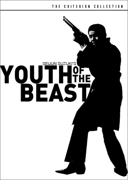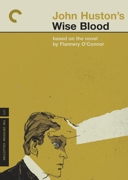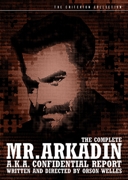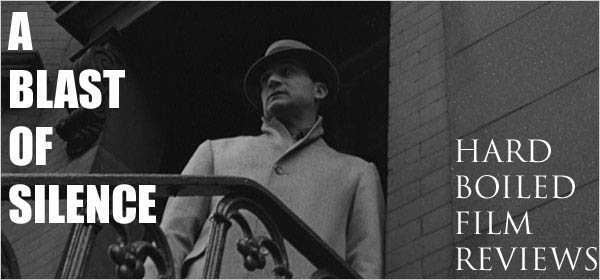Youth of the Beast (#268, 1963)

dir. Seijun Suzuki
Famed Japanese yakuza filmmaker Seijun Suzuki tapped in the world of gangsters and the like with this early 1960's film that has been said to help revitalize the yakuza genre. What stands out above all else in Suzuki's films, Youth of the Beast especially, is the unique left field approach not seen in other films of the similar type. The artistic flair of Suzuki is most definitely something many great American filmmakers of the 1970's tapped into at one time or another. His hallucinatory and psychedelic trance-inducing visuals were something to behold for the early 1960's. Even the main crime boss eerily pets a cat similar to Ernst Stavro Blofeld (a character introduced in the same year) of the James Bond films did. Truth be told, there aren't many filmmakers in the genre, both Japanese yakuza and American gangster, who are able to couple visual variety with a sincere and gritty noir-based story. Youth of the Beast tells greatly and emotionally of a man's attempt to revenge what he thinks was a set-up of a close friend by infiltrating two crime syndicates.
Last Year at Marienbad (#468, 1961)

dir. Alain Resnais
Last Year at Marienbad isn't exactly an unknown film. It's actually quite well known. I do happen to think that it might be a bit overlooked by your average person. It certainly isn't for everyone, but I do think that everyone that enters into the mysterious puzzle that is Resnais' French new wave masterpiece gets a little something of their own out of it. This is a film that doesn't hand you anything, but one that must be worked at to receive anything out of. I've only seen the film once, far few times to actually grasp the understanding Resnais is working at. That is indeed something I don't think I'll ever understand. What can be understood is the absolutely unique story and narrative structure by which Resnais tells it. Last Year at Marienbad is the puzzling attempt by a man to rekindle a relationship that supposedly began a year ago with a strange woman. Resnais implements present and past into one, making sure the viewers are on their toes at all times. Two people, who may or may not have met before, with a mysterious flame being lit between them, and a troupe of odd and seemingly dreamy characters interfering around them.
Europa (#454, 1991)

dir. Lars von Trier
I seem to have a soft spot for the delirious and dreamy. Europa fits somewhere into the mold of the above two films. The hypnotic state of von Trier's is jet-setted from the start. Personal favorite of mine, Max von Sydow, opens the film with a downright unsettling and captivating voice over, coming into complete control of both you and the main character. If you don't settle into the mood of the film by the time von Sydow is done speaking, you might be in for a bit of trouble. This film is weird, slightly campy with erratic acting, but always interesting. It doesn't liken to much else, even as far as von Trier himself goes. He's a methodical filmmaker, particular to the touch and always challenging and engaging his viewers. Titles like Breaking the Waves do it in other ways than Europa does, but the idea is still there. The brunt of von Trier's imagery is a dark and soulless black and white, with color capturing key images and items along the way. Settle in on a lost night with this title concerning a sleeping car constructor aboard Zentropa railways, and let the troubled train full of mystery carry you along for a ride across a war-torn and destroyed Europe.
Wise Blood (#470, 1979)

dir. John Huston
Now just because I wrote about this film before on my blog doesn't mean I can't include it again. Wise Blood is certainly one of the strangest offerings from John Huston. The extraordinarily acclaimed filmmaker has had his hand in more than one classic film in his time, but nothing I've seen comes close to the strangeness served up here. Brad Dourif stars in this film based on the Flannery O'Connor novel as Hazel Motes, an ambitious, young and uneducated southerner who has just returned from the war. Motes is motivated, destined to do something important. At least he wants to. As opposed to the idea of being a preacher as he is, Motes becomes one anyway as he starts the "Church Without Christ". Motes himself is a strange character, forget about those who surround him and follow him. The entire trip is a odd one. Words can't quite explain the small town feel combined with the big town idea.
The Complete Mr. Arkadin (#322, 1955)

dir. Orson Welles
I never thought I would put an Orson Welles film on this list, but I do think Mr. Arkadin fits fine in the subject matter. The film is considered to be a sort of lost mystery. Welles never really got to finish the film in the intended way he wanted to, but the genius beings at Criterion created the "comprehensive version", creating a film as close to the intended vision Welles had at the time of the project. Included in the box set are three versions of the films, enough to satisfy all those intrigued in the mystery of who exactly Gregory Arkadin is. The film is a tale for the ages, and Criterion finally gave the world the best possible way of telling it to our eyes. Welles has always been a master of the mystery (his character in The Third Man, his dreamy documentary F for Fake) and Mr. Arkadin is no different.
That's that. I know these films are exactly all secret gems, but I do think they've flown somewhat under the radar to the average moviegoer. Home entertainment can fill a lot of voids mainstream popcorn crunching cinema just can't. The art, the mystery, the sense of time. It's all there. And remember, these are only five of the nearly 500 titles Criterion has to offer.




No comments:
Post a Comment